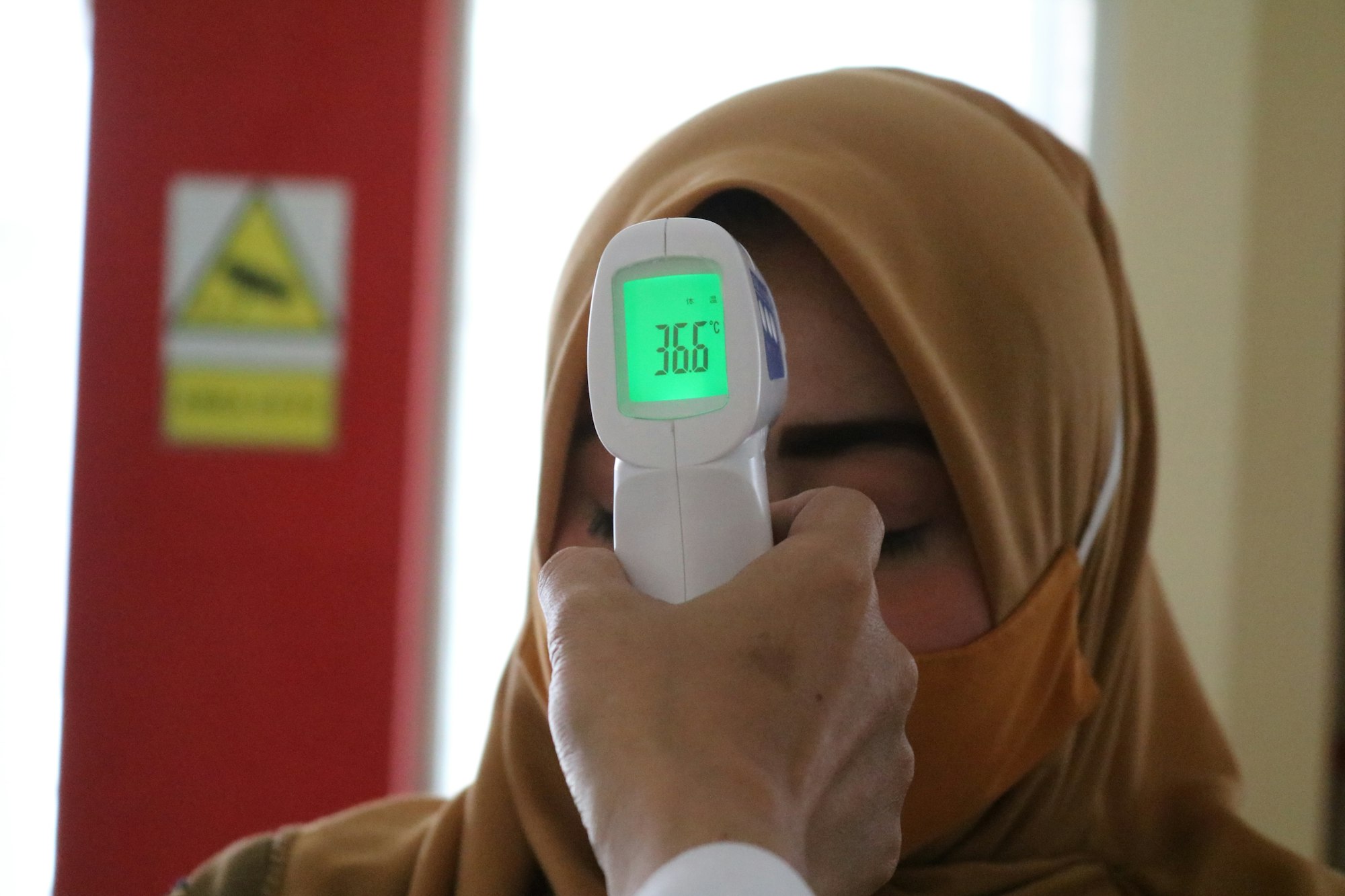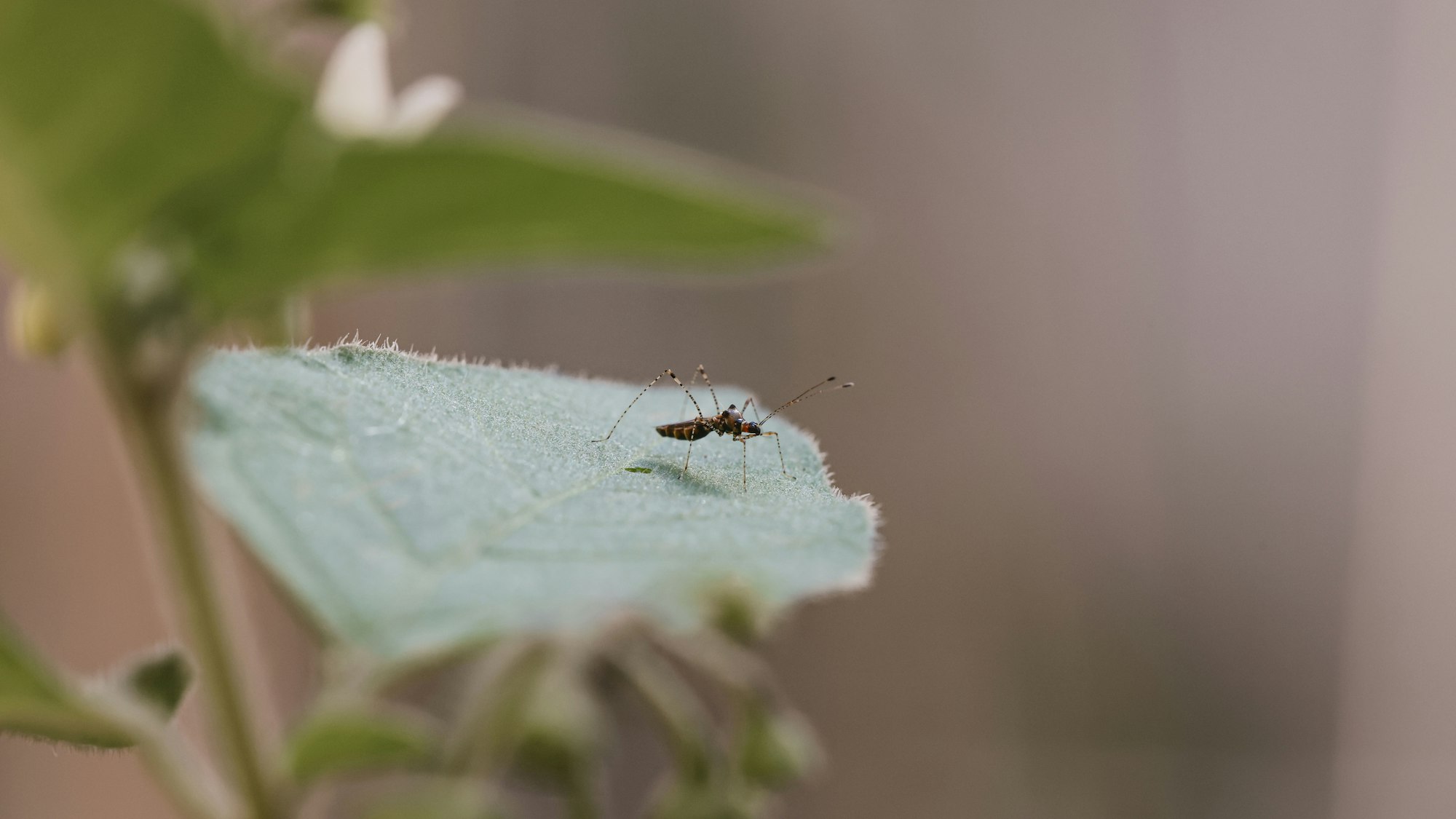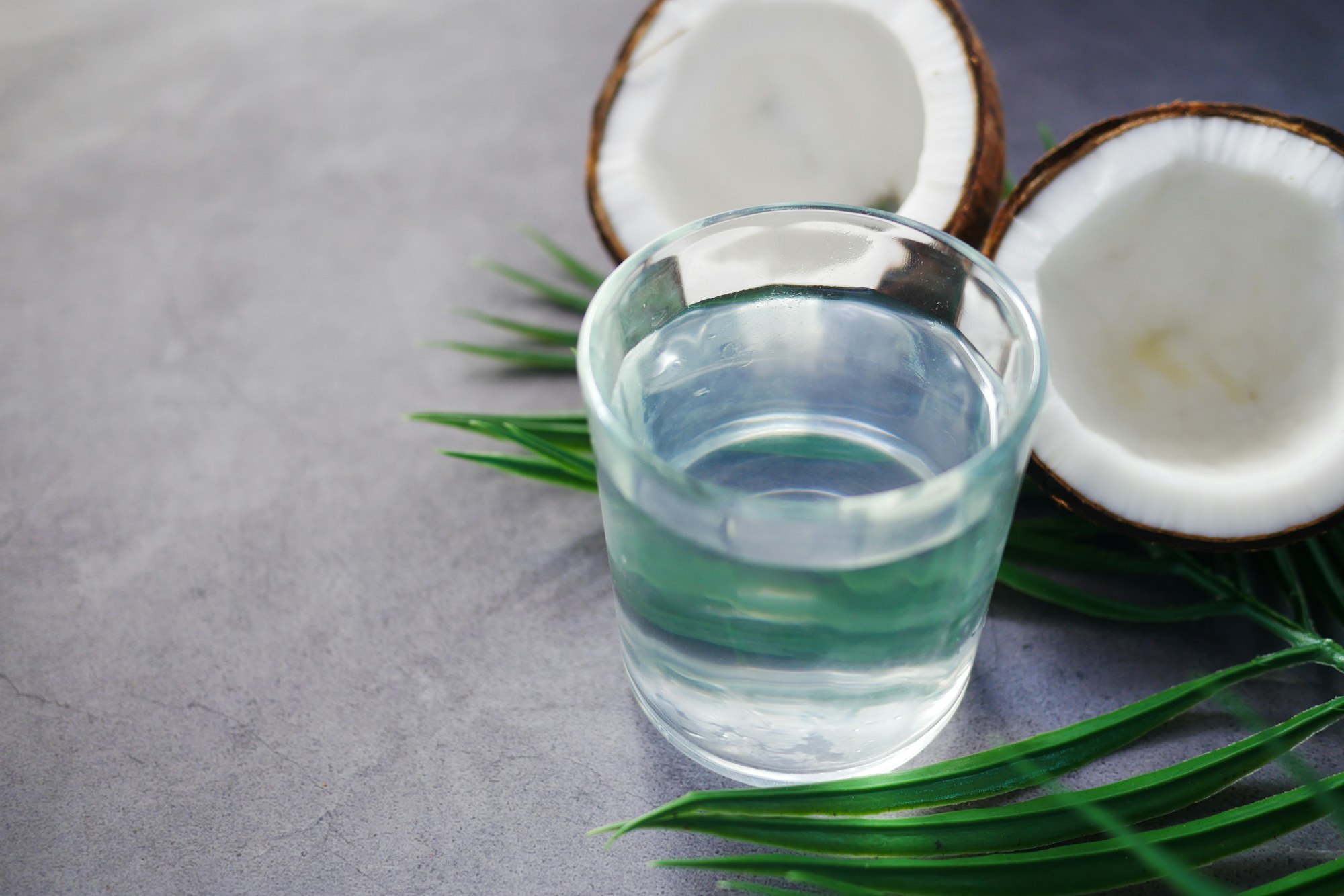Dengue Fever Treatment at Home
Discover effective home remedies for managing Dengue Fever symptoms. Learn how to alleviate fever, joint pain, and more with natural treatments.

Dengue fever is a viral illness transmitted by Aedes mosquitoes, primarily in tropical and subtropical regions. While there is no specific antiviral treatment for dengue fever, most cases can be managed at home with supportive care. It's essential to consult with a healthcare professional if you suspect you have dengue fever, as severe cases can be life-threatening and require hospitalization. Here are some home care tips for managing mild cases of dengue fever:

- Stay Hydrated: One of the most critical aspects of dengue fever management is staying well-hydrated. Drink plenty of fluids, such as water, oral rehydration solutions, coconut water, and clear soups. Dehydration is a significant risk in dengue, so aim to drink fluids regularly, even if you don't feel thirsty.
- Rest: Get plenty of rest to help your body recover. Avoid strenuous activities, and allow your immune system to fight the virus.
- Pain and Fever Relief: Over-the-counter pain relievers like acetaminophen (paracetamol) can help reduce fever and relieve pain. Avoid non-steroidal anti-inflammatory drugs (NSAIDs) like ibuprofen and aspirin, as they can increase the risk of bleeding, which is a concern with dengue.
- Monitor for Warning Signs: Keep a close eye on your symptoms. If you experience any warning signs, such as severe abdominal pain, persistent vomiting, bleeding gums, difficulty breathing, or a decrease in urine output, seek immediate medical attention. These signs may indicate severe dengue (also known as dengue hemorrhagic fever or dengue shock syndrome), which requires hospitalization.
- Use Mosquito Repellent: Since dengue is transmitted by mosquitoes, use mosquito repellent on exposed skin and wear long-sleeved clothing to reduce your risk of getting bitten. Additionally, use bed nets if you're resting during the day.
- Maintain a Cool Environment: Try to stay in a cool and well-ventilated room to help manage fever and make yourself more comfortable.
- Diet: Eat light and easily digestible foods. Avoid heavy, greasy, or spicy meals, as they can worsen nausea and vomiting.
- Frequent Monitoring: Keep an eye on your temperature, hydration level, and overall well-being. If your condition worsens, seek medical attention promptly.
Remember that dengue can progress rapidly, so it's crucial to monitor your symptoms closely and seek medical help if they worsen or if you experience any warning signs. Early detection and proper medical care can significantly improve your chances of a full recovery. Always follow the guidance of healthcare professionals when dealing with dengue fever.

Dengue Fever Home Remedies
Dengue fever is a viral illness transmitted by the Aedes mosquito and can cause severe flu-like symptoms, including high fever, joint and muscle pain, rash, and in some cases, life-threatening complications. While there is no specific herbal remedy that can cure dengue fever, some herbs and natural remedies may help alleviate its symptoms and support the immune system during recovery. It's essential to note that these remedies are not a substitute for medical treatment, and you should always consult with a healthcare professional for proper diagnosis and guidance. Here are some herbal remedies that are sometimes suggested for managing dengue fever symptoms:
- Papaya Leaf Extract: Papaya leaf extract is one of the most widely discussed herbal remedies for dengue fever. Some studies suggest that papaya leaf extract may help increase platelet count, which can drop significantly in dengue patients. You can prepare papaya leaf tea by crushing fresh papaya leaves and extracting the juice. However, consult with a healthcare provider before using papaya leaf extract.
- Turmeric: Turmeric contains curcumin, a compound with anti-inflammatory and antioxidant properties. Adding turmeric to your diet or drinking turmeric tea may help reduce inflammation and relieve some dengue symptoms.
- Ginger: Ginger is known for its anti-inflammatory and immune-boosting properties. It may help alleviate nausea and digestive issues that can occur with dengue fever. You can make ginger tea or add fresh ginger to your meals.
- Neem Leaves: Neem leaves are traditionally used in Ayurvedic medicine for their antiviral and antibacterial properties. Neem leaves can be brewed into a tea or used as a paste on the skin to reduce itching and rashes.
- Fenugreek: Fenugreek seeds are believed to help reduce fever and provide relief from pain. You can make fenugreek tea by boiling fenugreek seeds in water.
- Tulsi (Holy Basil): Tulsi is considered a sacred herb in Ayurveda and has immunomodulatory and anti-inflammatory properties. Drinking tulsi tea or chewing fresh tulsi leaves may help boost your immune system.
- Barley Grass: Barley grass is rich in essential nutrients and may help improve platelet count and overall health. You can consume barley grass juice or supplements.
- Coriander: Coriander has anti-inflammatory properties and may help reduce fever and joint pain. You can make coriander tea by boiling coriander seeds in water.
- Coconut Water: Coconut water is hydrating and can help combat dehydration, which is a concern with dengue fever. It also provides essential electrolytes.

- Hydration and Rest: While not an herb, staying well-hydrated and getting plenty of rest are crucial for dengue recovery. Herbal teas, such as chamomile or peppermint, can also be beneficial for hydration and relaxation.
Remember that dengue fever can progress to a severe and life-threatening form called dengue hemorrhagic fever, so it's essential to seek medical attention if you suspect you have dengue or if your symptoms worsen. Herbal remedies can be complementary to medical treatment but should not replace it. Always consult with a healthcare professional before using any herbal remedy, especially if you are pregnant, breastfeeding, or taking medications.
Natural Herbs Importance
Natural herbs can play a supportive role in managing dengue fever, but it's crucial to understand that they are not a replacement for medical treatment. Dengue fever can range from mild to severe, and in some cases, it can be life-threatening, so seeking medical attention and following the advice of healthcare professionals is of utmost importance. However, natural herbs can offer several benefits in the context of dengue fever:
- Symptom Relief: Many natural herbs have anti-inflammatory, analgesic, and antipyretic (fever-reducing) properties. They can help alleviate some of the uncomfortable symptoms of dengue fever, such as high fever, joint pain, and muscle aches.
- Immune Support: Some herbs are known to boost the immune system's function. A strong immune system can help the body fight off the dengue virus more effectively.
- Hydration and Nutrition: Certain herbs and herbal teas can provide hydration and essential nutrients. Maintaining proper hydration is critical for dengue patients to prevent complications like dehydration.
- Platelet Support: Platelet count can drop significantly in severe cases of dengue fever, leading to bleeding and other complications. While not a guaranteed cure, some herbs, like papaya leaf extract, have been studied for their potential to boost platelet production.
- Antiviral and Antibacterial Properties: Several herbs have natural antiviral and antibacterial properties. While they may not directly target the dengue virus, they can help the body fight off secondary infections that could worsen the condition.
- Reduction of Inflammation: Dengue fever can lead to inflammation in various parts of the body, causing pain and discomfort. Herbs with anti-inflammatory properties, such as turmeric and ginger, can help reduce this inflammation.
- Relief from Nausea and Digestive Issues: Some herbs, like ginger and peppermint, can ease nausea and digestive problems that often accompany dengue fever.
- Stress Reduction: Herbal teas like chamomile or lavender can promote relaxation and reduce stress, which can be beneficial for dengue patients.
It's essential to use natural herbs for dengue fever in consultation with a healthcare provider. Herbal remedies should not replace standard medical treatment, especially in severe cases of the disease. Dengue fever can progress rapidly, and patients may require hospitalization and supportive care, including intravenous fluids and blood transfusions.
Additionally, the effectiveness and safety of herbal remedies can vary, and some may interact with medications or have contraindications for certain individuals. Always inform your healthcare provider about any herbal remedies you plan to use or are currently using as part of your dengue fever management.
Preventive Measures
Preventing dengue fever primarily involves reducing your exposure to Aedes mosquitoes, which transmit the virus. Here are several key measures you can take to prevent dengue fever:
- Use Mosquito Repellent: Apply an insect repellent containing DEET, picaridin, or oil of lemon eucalyptus to exposed skin and clothing. Reapply as directed on the product label.
- Wear Protective Clothing: When in areas with a high risk of dengue transmission, wear long-sleeved shirts, long pants, socks, and shoes to minimize exposed skin.
- Install Window and Door Screens: Use mosquito screens on windows and doors to prevent mosquitoes from entering your home.
- Use Bed Nets: Sleep under a bed net, especially if you don't have air conditioning or screens on your windows. Ensure the net is properly tucked in to prevent mosquitoes from getting inside.
- Eliminate Breeding Sites: Aedes mosquitoes breed in stagnant water. Regularly empty, cover, or treat containers that collect and hold water around your home, such as flowerpots, buckets, and discarded tires.
- Clean Gutters and Drains: Keep gutters and drains clear of debris to prevent water from pooling and becoming breeding sites for mosquitoes.
- Keep Water Storage Containers Covered: If you have water storage containers, ensure they are tightly covered to prevent mosquito access.
- Dispose of Trash Properly: Dispose of trash and discarded items that can collect water in a sealed and responsible manner.
- Use Larvicides: In areas with persistent mosquito breeding, consider using larvicides or mosquito dunks to treat standing water.
- Community Efforts: Engage in community-based efforts to control mosquito breeding, such as neighborhood clean-up campaigns.
- Stay Informed: Be aware of dengue outbreaks and transmission patterns in your area. Follow local health advisories and take necessary precautions.
- Travel Precautions: If you're traveling to regions with dengue risk, take extra precautions by staying in air-conditioned or well-screened accommodations, using mosquito nets, and using repellents.
- Vaccination (if available): In some regions, dengue vaccines are available. Consult with a healthcare provider to determine if vaccination is recommended for you.
Remember that dengue fever can be a serious illness, and while these preventive measures can significantly reduce your risk, they do not offer complete protection. Therefore, it's essential to remain vigilant and seek medical attention if you experience symptoms of dengue fever, especially if you live in or have recently traveled to an area with a known dengue risk. Early detection and proper medical care can help prevent complications and severe forms of the disease.
Conclusion about Dengue Fever Treatment:
Dengue fever is a viral illness that can range from mild to severe and, in some cases, become life-threatening. Proper medical treatment and care are essential for managing dengue fever effectively. Here are some key takeaways:
- Early Diagnosis: Early detection of dengue symptoms is critical. If you suspect you have dengue fever, seek medical attention promptly.
- Medical Supervision: Dengue fever should be managed under the guidance of a healthcare professional. They will monitor your condition, assess the severity, and provide appropriate treatment.
- Fluid Management: Maintaining hydration is crucial. In mild cases, oral rehydration solutions may suffice, while severe cases may require intravenous fluids.
- Pain and Fever Management: Over-the-counter pain relievers like acetaminophen (paracetamol) can help reduce fever and alleviate pain. Avoid non-steroidal anti-inflammatory drugs (NSAIDs) like ibuprofen, which can increase the risk of bleeding.
- Rest: Adequate rest is essential for recovery. Dengue fever can be physically exhausting, so take the time to rest and recuperate.
- Monitoring: Patients with dengue fever should be closely monitored for signs of complications, especially a drop in platelet count or the development of severe dengue (dengue hemorrhagic fever or dengue shock syndrome).
- Preventive Measures: Dengue fever is primarily spread by Aedes mosquitoes. To prevent infection, use mosquito repellents, wear protective clothing, and eliminate mosquito breeding sites around your home.
Frequently Asked Questions (FAQs) about Dengue Fever:
Q1: What are the common symptoms of dengue fever?
- A: Common symptoms include high fever, severe headaches, joint and muscle pain, rash, and mild bleeding.
Q2: How is dengue fever diagnosed?
- A: Diagnosis is typically based on symptoms, clinical evaluation, and blood tests like the Dengue NS1 antigen test and antibody tests.
Q3: Can dengue fever be treated with antibiotics?
- A: No, dengue fever is caused by a virus, so antibiotics are ineffective. Treatment mainly involves supportive care.
Q4: What is severe dengue and how is it treated?
- A: Severe dengue, or dengue hemorrhagic fever, can be life-threatening. It requires hospitalization, intravenous fluids, and possibly blood transfusions.
Q5: Are there vaccines for dengue fever?
- A: Yes, there are vaccines available for dengue fever. However, their availability and recommendations vary by region, and they may not provide full protection against all dengue virus serotypes.
Q6: Can herbal remedies cure dengue fever?
- A: Herbal remedies can help manage symptoms and support the immune system but should not replace medical treatment. Consult a healthcare provider before using herbal remedies.
Q7: Is dengue fever contagious?
- A: Dengue fever is not directly contagious among humans. It is transmitted through the bite of infected Aedes mosquitoes.
Q8: How can dengue fever be prevented?
- A: Preventive measures include using mosquito repellents, wearing protective clothing, and eliminating mosquito breeding sites around your home.
Q9: Can you get dengue fever more than once?
- A: Yes, it is possible to get dengue fever multiple times, as there are four different serotypes of the virus. A previous infection with one serotype does not provide immunity to the others.
Q10: What is the prognosis for dengue fever?
- A: The prognosis for dengue fever is generally good with proper medical care. Most people recover completely, but severe cases require prompt treatment to prevent complications.



